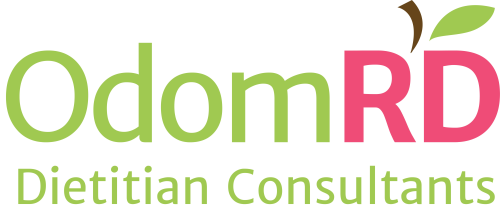
Mental Health & Depression
How Nutrition and Mental Health Connect
Life changes as we age. Loss of loved ones, retirement, chronic disease, disability, and other medical problems are common stressors for the elderly, and it can cause depression. Mental decline and memory issues also lead to reduced quality of life.
Adequate and proper nutrition is also impacted as we age, but as dietitians, we can help promote better intake and preserve quality of life for elders.
18% of Americans 65 and older are affected by depression, and it is more prevalent for those in nursing homes and individuals with existing health conditions. 1, 2
Signs & Symptoms of Depression
When asked if depressed, one may say, "no," but there are many signs of depression beyond feeling sad.
Common cues in the elderly include:
- persistent and vague complaints
- help-seeking
- moving in a slower manner
- demanding behavior
- memory problems
- confusion
- social withdrawal
- loss of appetite
- weight loss
- inability to sleep
- irritability delusions (fixed false beliefs)
- decreased energy
- fatigue pessimism
- guilt
- worthlessness aches
- pains
- headaches
- cramps
- digestive problems without clear cause
- thoughts of death and suicide attempts
Comorbidities
Symptoms of Depression Risk of depression increases if any the following are present:
- chronic medical illness (e.g. cancer, heart disease, diabetes)
- disability
- insomnia
- socially isolated or lonely
- family history of depression
- recent experience of a stressful life event
Depression is common in the elderly, but that doesn't mean it's normal. It's also treatable, and there are interventions that can improve quality of life.
Nutritional Concerns
Depression and other mental illnesses can cause loss of appetite, which can lead to reduced intake overall. Reduced intake can worsen sarcopenia and result in weight loss and micronutrient deficiencies. Underweight and obese individuals report depressed symptoms more frequently than those with normal weight.
- A liberalized diet will promote better intake and reduce the need for oral nutritional supplements.
- Offering favorite foods can improve intake, and using higher calorie ingredients can reduce weight loss. For example, using whole milk in oatmeal can provide more calories than reduced-fat milk.
- Using whole milk, butter, avocado, nut butters, and other calorie-dense foods can slow weight loss.
- Protein such as yogurt, cottage cheese, nuts, and nut butters, and spreads like tuna and chicken salad are great options for snacks. These can be paired with fruit, vegetables, or whole grain items.
- Smoothies with yogurt, milk, nut butters, and fruit can provide more calories.
- Small, frequent meals may result in better intake than 3 larger meals.
- Foods that are easy to prepare with little time or physical energy can improve intake, feelings of autonomy, and provide independence.
Micronutrients & Overall Health
Some micronutrients are of higher concern for the elderly, and some evidence indicates possible roles in depression. Folate, B12, omega-3 fatty acids, iron, and vitamin D may play a role in depression in the elderly. Several factors (such as medications or genetics) can play a role in utilizing these nutrients. Assessing status for B12, folate, iron, and vitamin D is best to determine deficiency.
Omega-3 fatty acids can help reduce cholesterol and improve HDL levels. Omega-3 fatty acids can be obtained through fish, flaxseed, walnuts, and canola oil for the added benefit of cardiovascular health. While whole milk dairy improves calorie intake, providing additional fat sources improves overall health.
Vitamin D is fortified in some foods, such as milk and orange juice. Canned salmon and tuna are good food sources of vitamin D.
Vitamin B12, while adequately consumed, may not be absorbed properly and a supplement can be considered if low.
Folate is found in foods such as oranges, whole grains, strawberries, green vegetables, beans, and eggs. Refined grains are fortified with folic acid, which is another form of this vitamin.
Iron absorption is affected by many factors, but several foods can provide this important mineral. Meat will provide iron, but beans, nuts, seeds, and fortified cereals can also provide iron as well. Vitamin C will improve absorption of iron, so a squirt of lime or orange wedges are great pairing.
Tools: Improving Independence
Mental decline from Alzheimer's, Parkinson's, stroke, or other conditions can lead to difficulty in utensil use. Weighted utensils, divided plates, and other adaptive equipment can improve intake at meals. Otherwise, finger foods can be helpful.
Improving independence can reduce depression in the elderly.
Registered Dietitians and Their Role
Dietitians can help find creative ways to improve intake and nutrition status, which will improve overall quality of life for our residents.
OdomRD Dietitian Consultants are happy to assist, placing hearts in homes to give our elders the best quality nutrition possible.
Resources
1. How Can Clinical Depression Be Distinguished from Normal Sadness and Grief? www.nami.org. Accessed October 8, 2020.
2. Institute of Mental Health N. Older Adults and Depression: Learn the Signs and Find Treatment.
3. Payne ME. Nutrition and late-life depression: etiological considerations Depression: a significant problem for older adults. doi:10.2217/ahe.09.90
4. Okereke OI, Singh A. The Role of Vitamin D in the Prevention of Late-life Depression. doi:10.1016/j.jad.2016.03.022 5. Fairweather-Tait SJ, Wawer AA, Gillings R, Jennings A, Myint PK. Iron status in the elderly. Mech Ageing Dev. 2014;136-137:22-28. doi:10.1016/j.mad.2013.11.005
Download Free PDF by subscribing to our monthly newsletter!
 EMF Contact Form
EMF Contact Form
